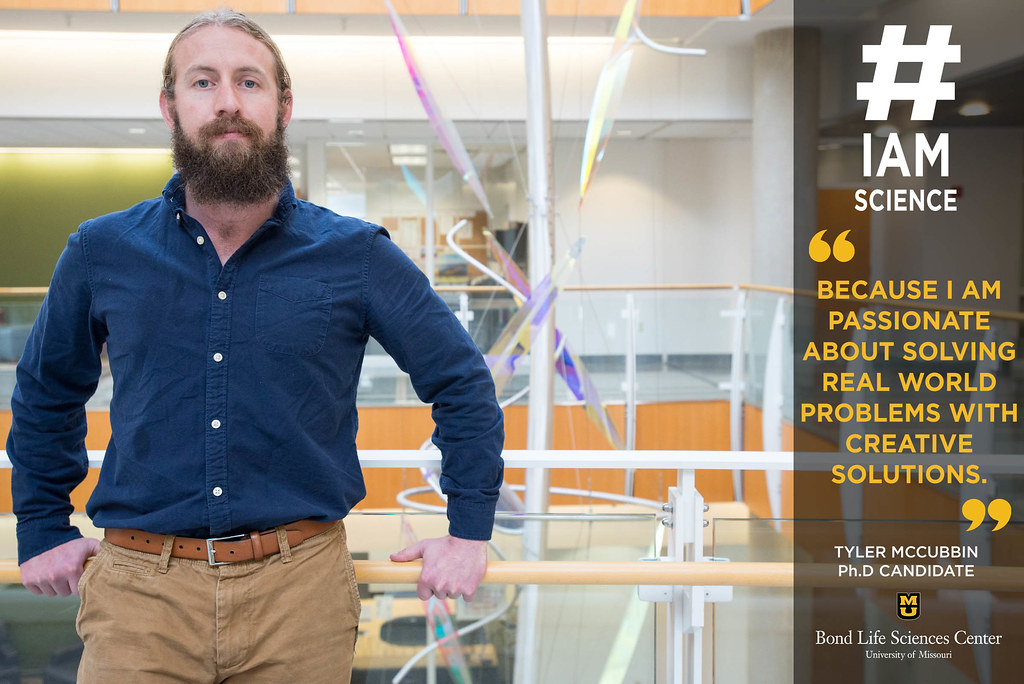
By Allison Scott | Bond Life Sciences Center
“#IAmScience because I am passionate about solving real world problems with creative solutions.”
A lot of people get signs as a guide for the direction they’re supposed to take in life. Tyler McCubbin’s sign was more literal.
“There was a giant billboard alongside a county road and it said ‘Pray for Rain,’ and it’s probably still there,” McCubbin said. “Seeing that at the height of the drought was inspiring. It made me question why anyone studies anything other than drought responses.”
Now as a second year Ph.D. student collaborating with Scott Peck’s lab in Bond LSC, McCubbin studies drought’s impact on the crown roots of corn, which grow from the stem.
“We’re interested in what’s unique about those and why they can keep growing while everything else stops,” McCubbin said. “I’m able to make crown roots grow in a very dry environment. Then I dissect them into different regions and see which genes are turned on and off in response to drought.”
By using a strategically designed apparatus, McCubbin can control the soil environment the corn grows in and better understand why crown roots continue to grow.
“It took a lot of time to come up with the apparatus,” McCubbin said. “We’ve spent about a year optimizing it so that it’s repeatable and accurate.”
Doing that has streamlined his research and given him the opportunity to find results that can be applied to other aspects of the grant.
While the effort is collaborative between a number of labs, McCubbin is impressed by how centralized it is.
“The project is funded by the National Science Foundation,” McCubbin said. “There are six labs working on this project all at Mizzou, which makes this unique.”
And when he’s not working on the mechanisms that make corn roots able to survive drought, McCubbin spends as much time as possible outdoors.
“I am passionate about wildlife conservation and have participated in wetland ecosystem restoration efforts for most of my adult life,” McCubbin said. “If I’m not in the lab, I’m outside because it’s where I feel most at home.”

